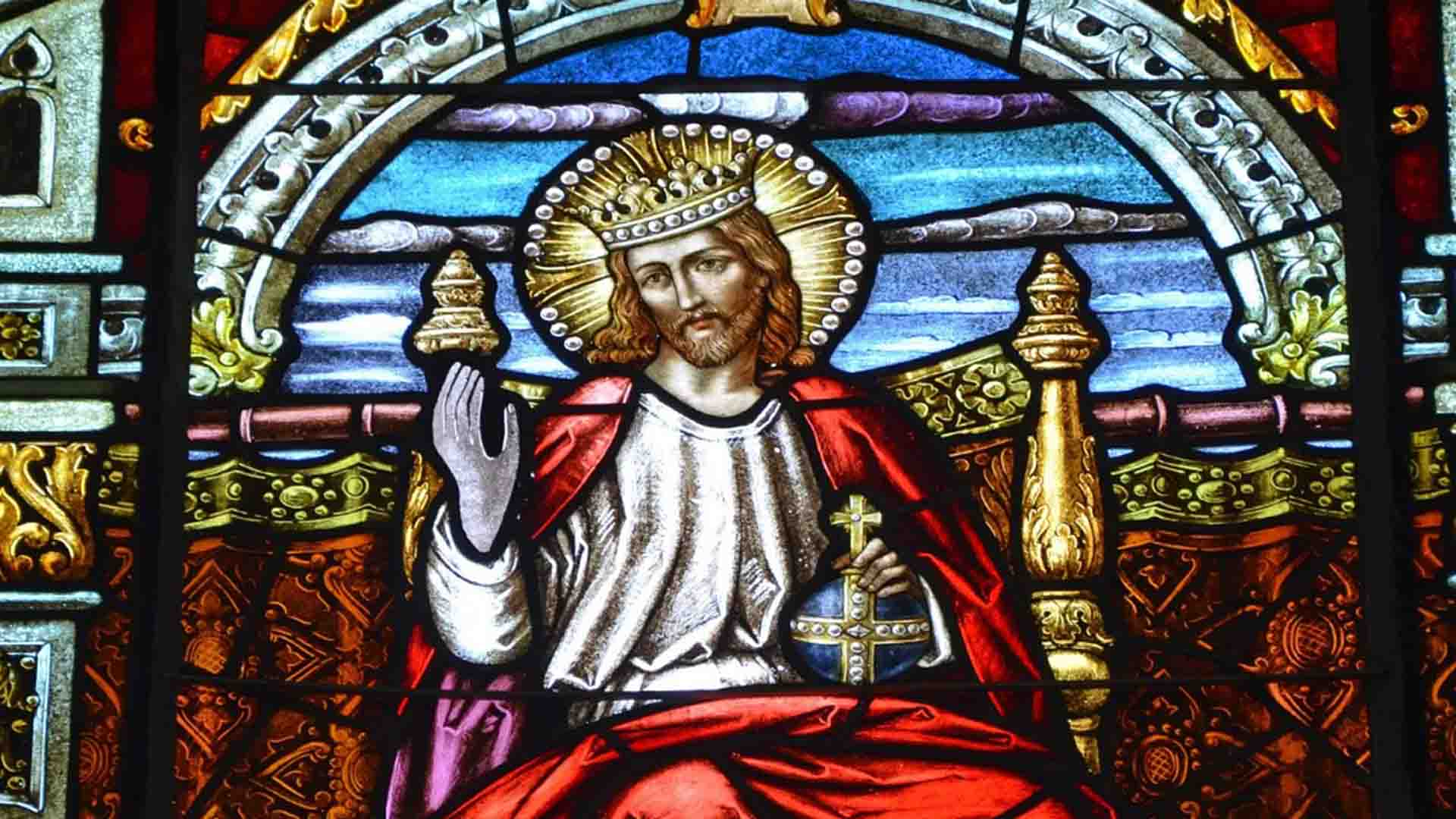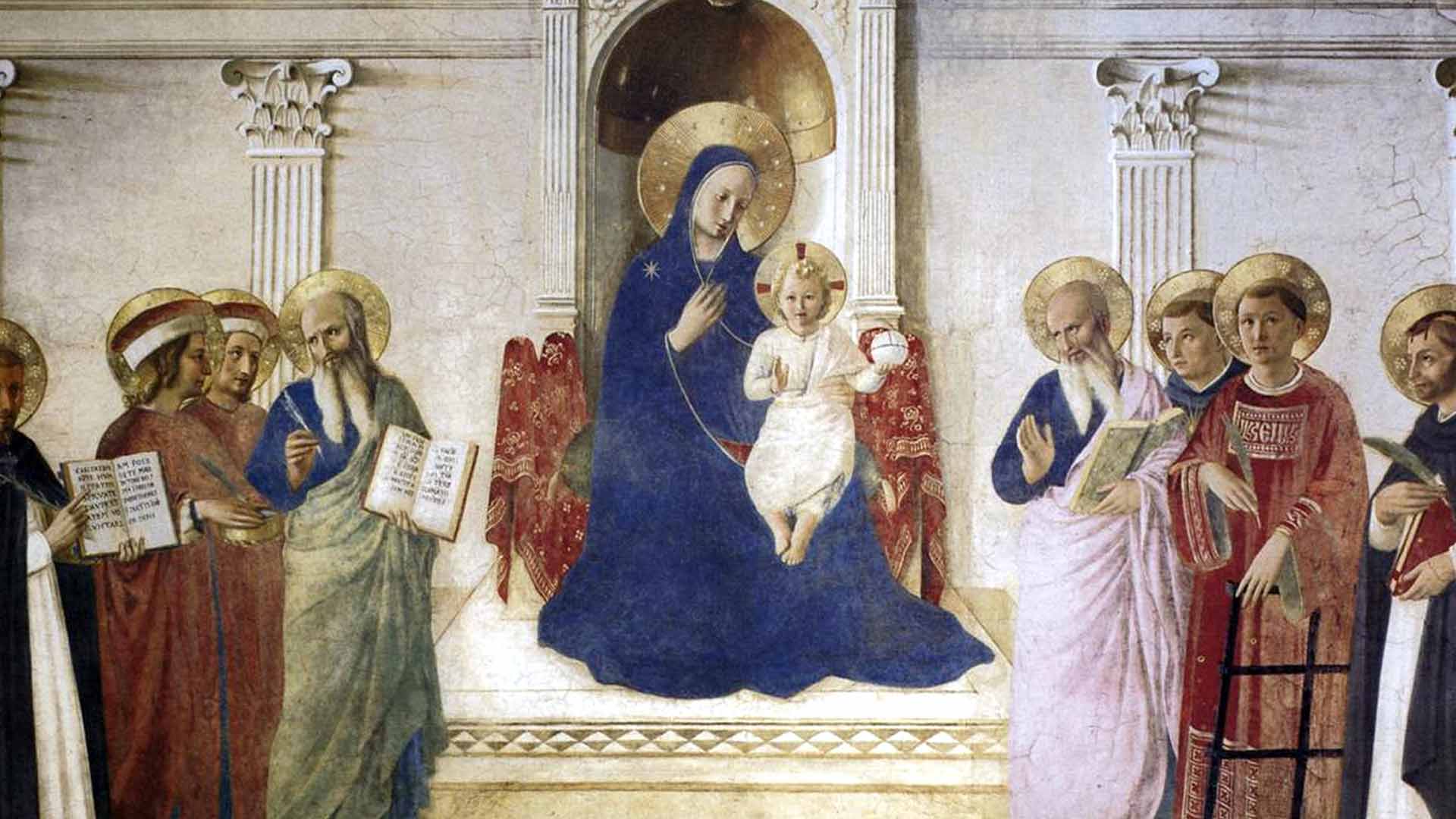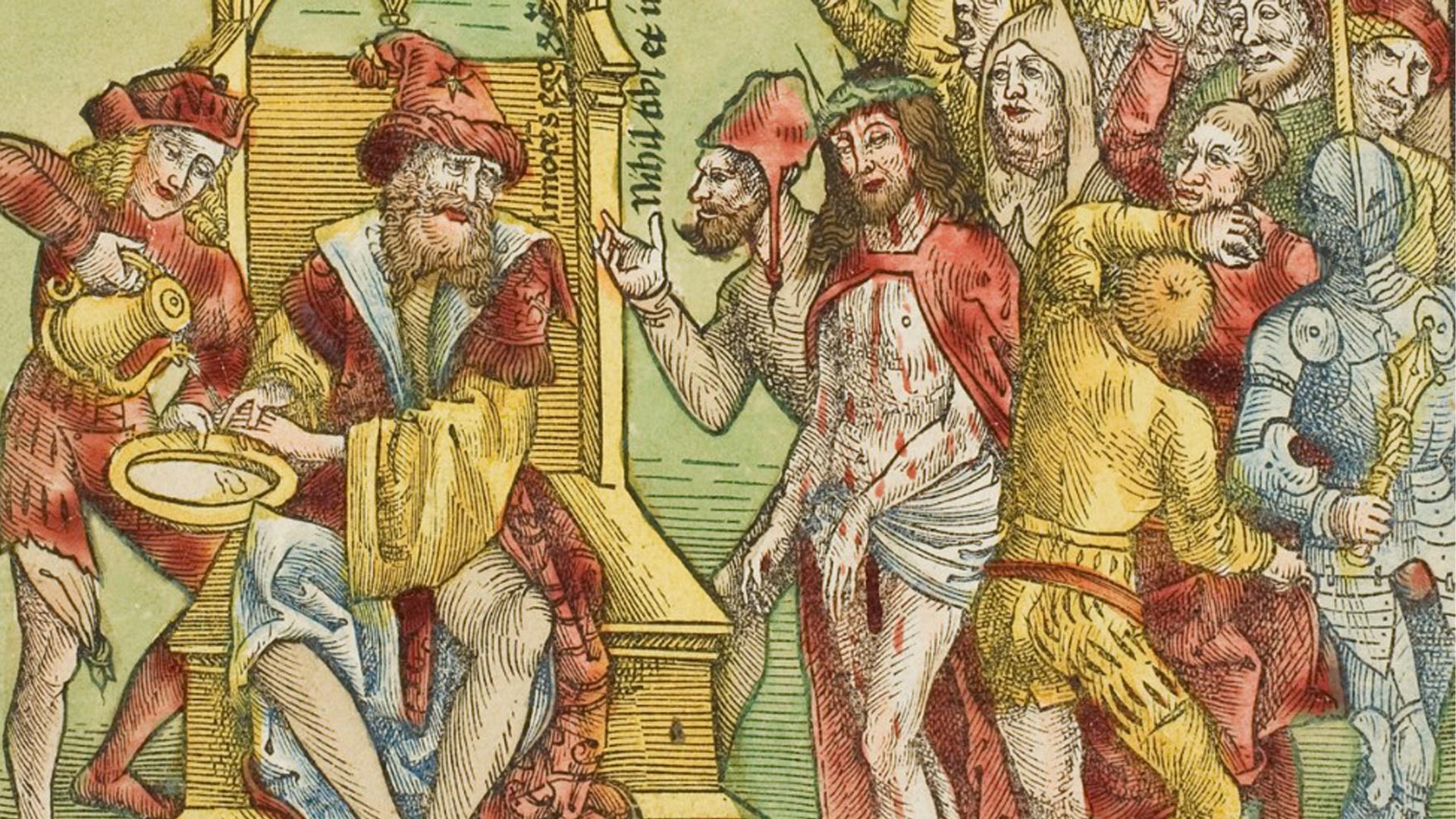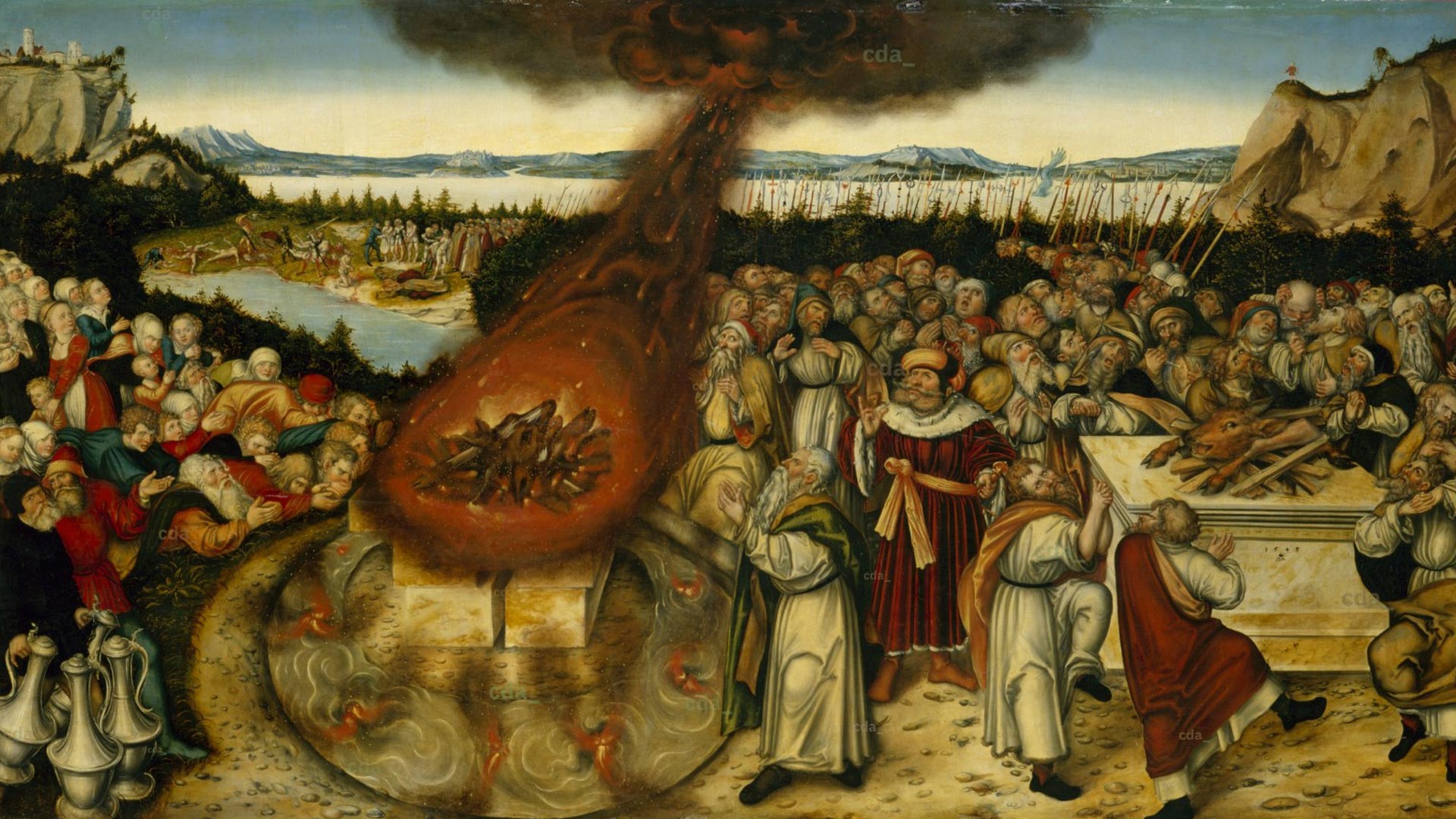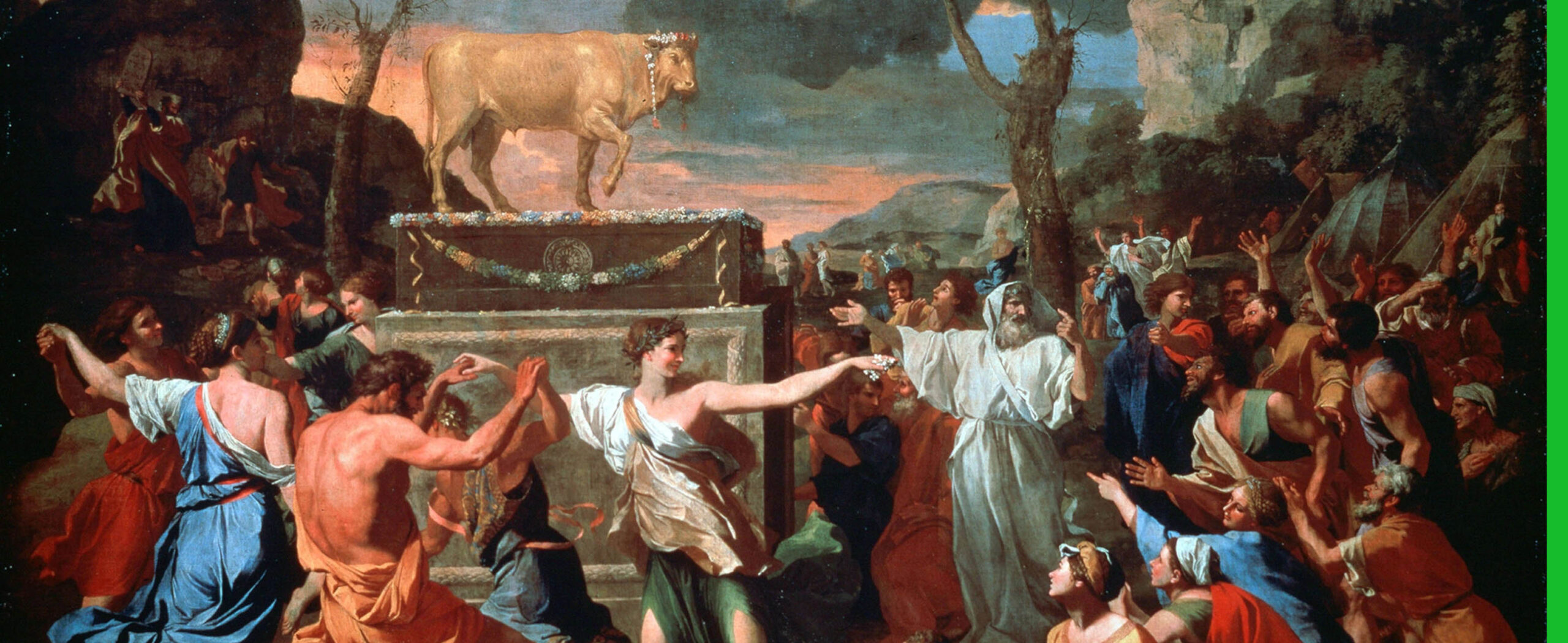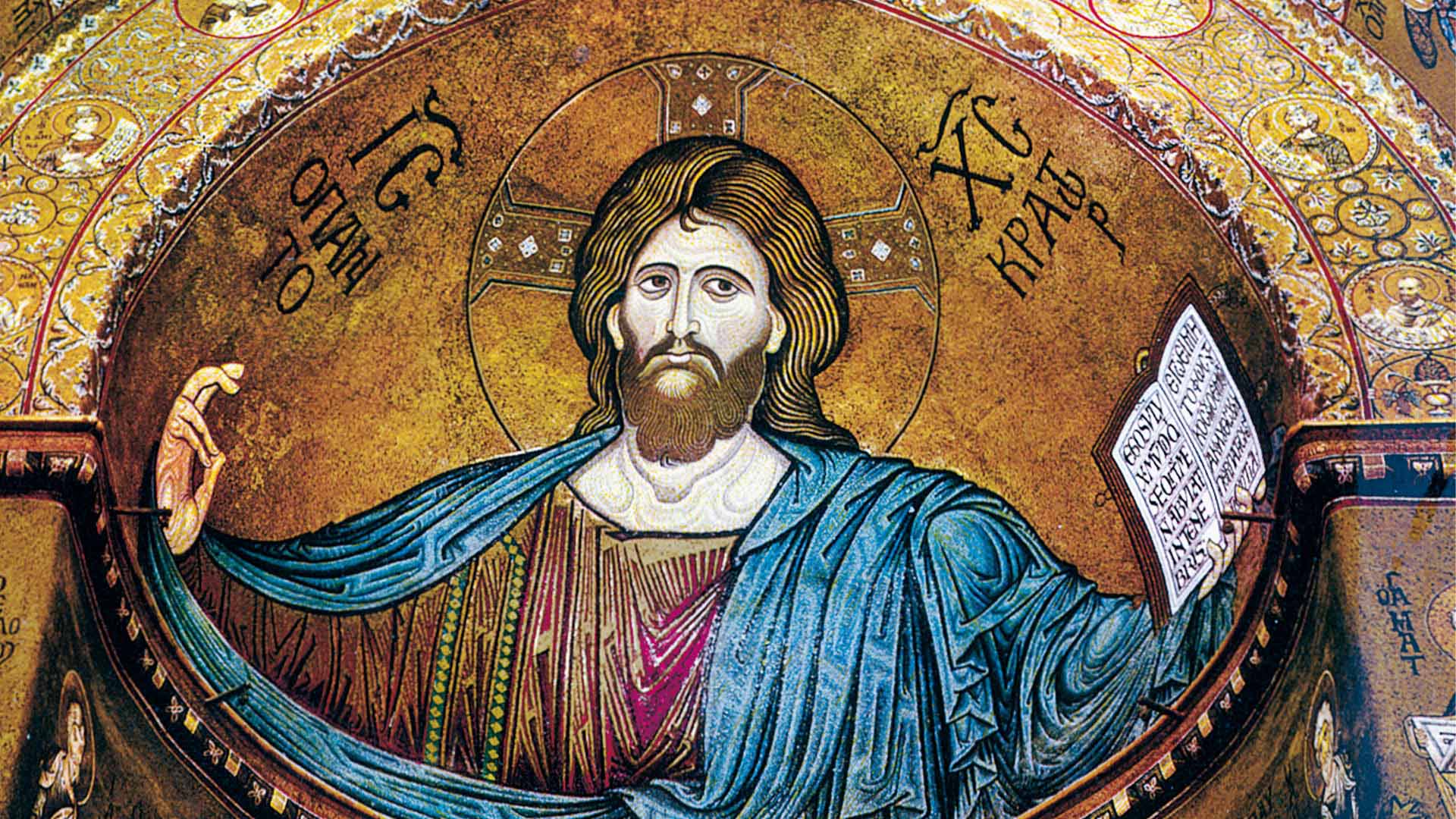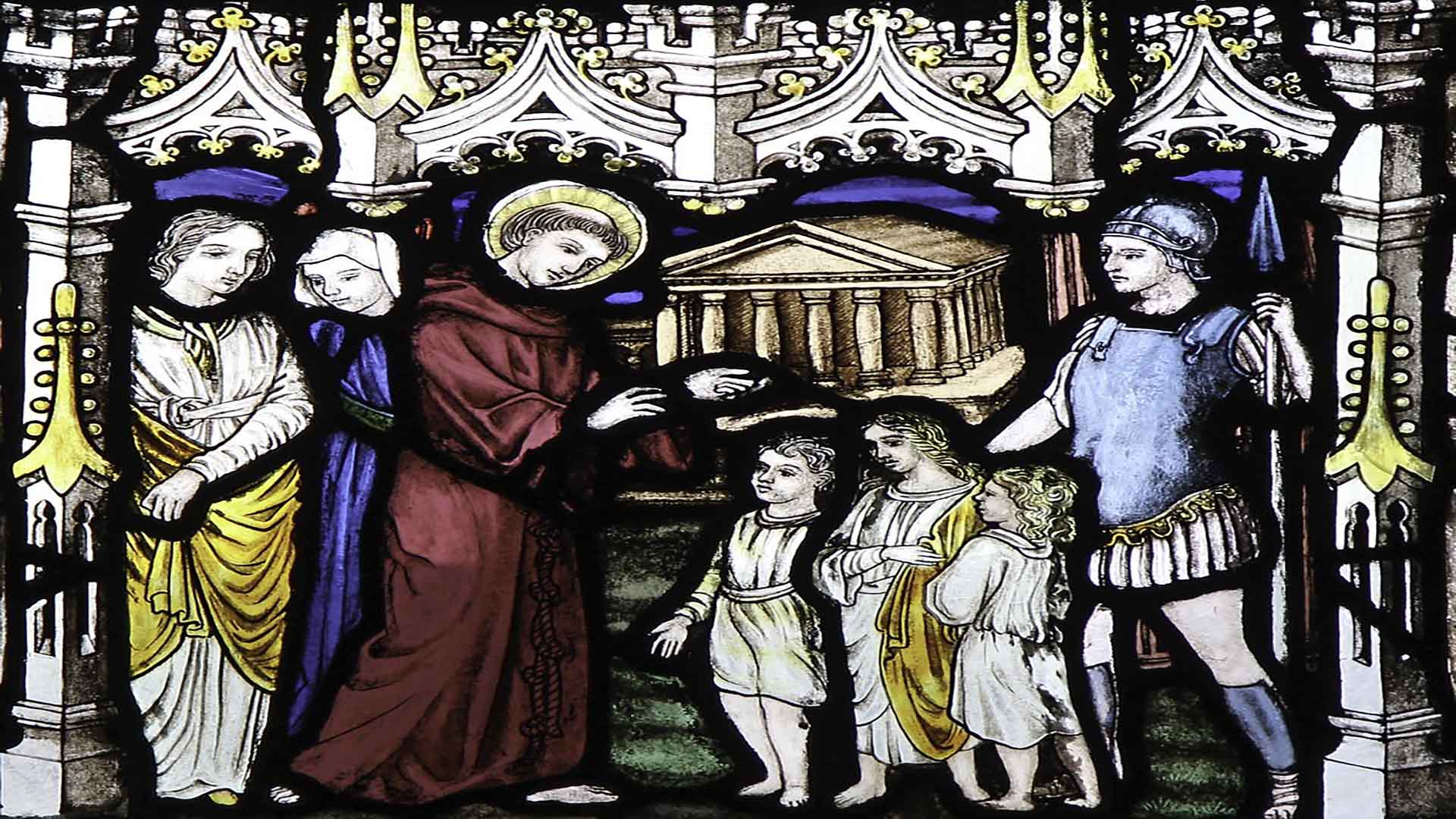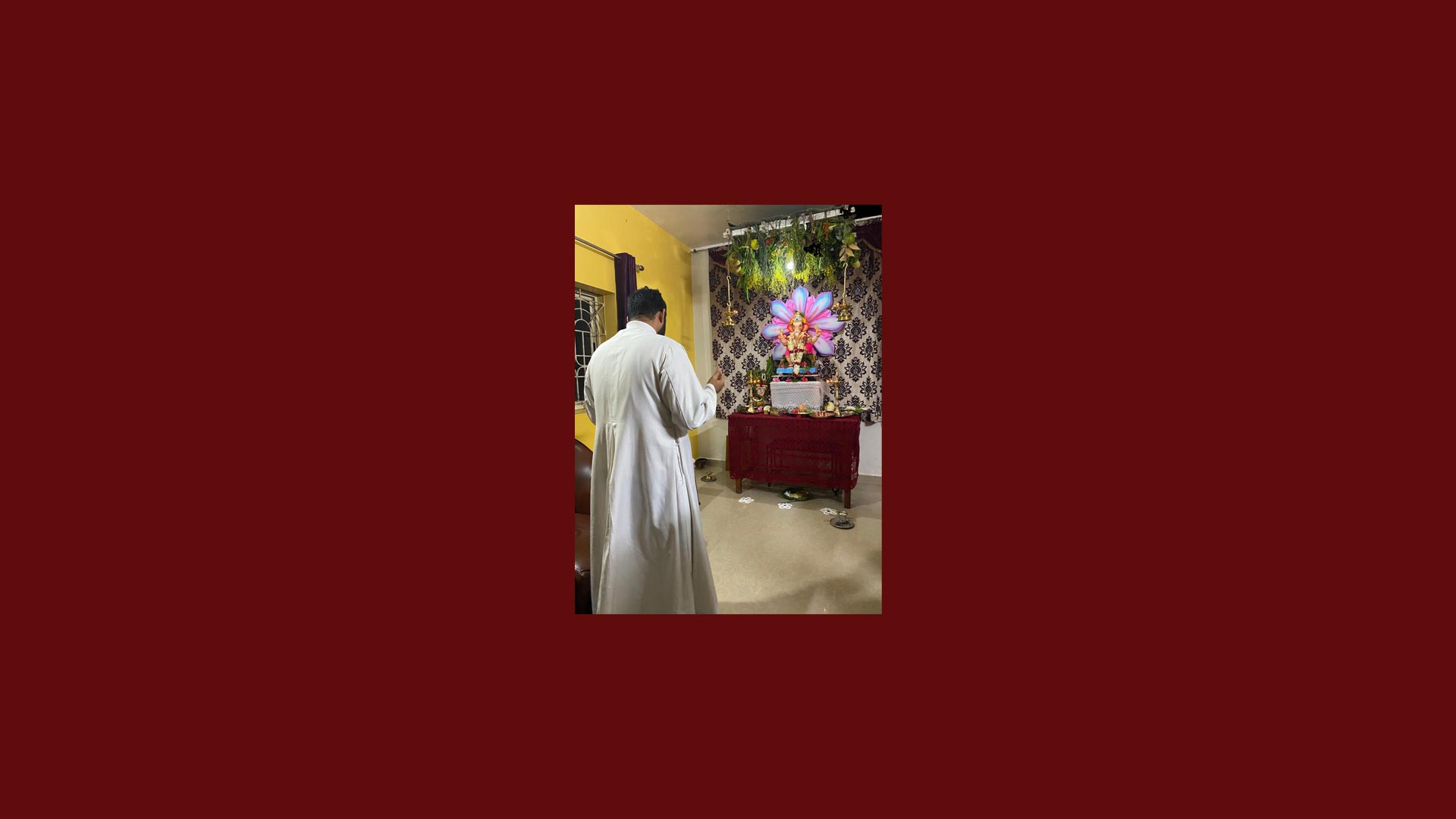Doctrine to the winds?
It is of the essence to look at Catholic doctrine as one whole; by looking at it piecemeal we may end up distorting it, just as by interpreting it loosely we may sooner or later water it down completely.
Here is a case in point: as seen on Corpus Christi Sunday, Jesus’ words (Jn 3: 16-18) – “God so loved world that He gave His Only Son, that whoever believes in Him should not perish but have eternal life” – mean that outside the Church there is no salvation. And this is what the Catholic Church has taught down the ages.
As pointed out in our reflection last Sunday, the Catechism of the Catholic Church states that “those who, through no fault of their own, do not know the Gospel of Christ or his Church, but who nevertheless seek God with a sincere heart, and, moved by grace, try in their actions to do his will as they know it through the dictates of their conscience – those too may achieve eternal salvation” (CCC 847).
In short, Baptism is necessary for salvation of anyone who has heard the Good News and has had the possibility of asking for Baptism.

Risk of Concessions
On the other hand, concessions could lead the faithful to believe that anything goes. One such of my worst fears came true yesterday when I happened to attend the anticipated Sunday Mass at a chapel. The priest stated quite nonchalantly: “There is no need for baptism; living the Christian values is enough.”
In one stroke he had let the congregation know that they need not have come to church at all; just living a good life at home or elsewhere would suffice! Should we, then, dismantle our baptismal fonts?
When approached after Mass, the cleric tried to wriggle out from it at first but before long he admitted that his words were meant to appease a certain section… In the process, he had not only taken the congregation but even Our Lord Himself for granted. Thus, in a bid to sound politically correct, he had no qualms about being evangelically incorrect.
Who can deny the possibility of a non-sacramentally baptised person being saved, under the circumstances foreseen by the Catechism? But is it a cakewalk? If salvation of the baptised is difficult – for we have to pass through the narrow door – it is much more so for the non-baptised who have no access to the sacraments and other ordinary means of sanctification that God has provided to his Church!
That is why Pope Pius IX in his encyclical Quanto conficiamur moerore (10 August 1863), on promotion of false doctrines (cf. paras. 7, 8, 9, 11, 13), condemns those who believe that “good hope at least is to be entertained of the eternal salvation of all those who are not at all in the true Church of Christ” (Syllabus of Errors, 1864, para 17)
Newfangled Approach?

When a clarification was sought, the priest waxed eloquent about a “new approach” devised by the Church and, right or wrong, cited the present Pope. But then, the important point to remember is that no approach, whether old or new, is entitled to throw doctrine to the winds.
According to the so-called new approach, then, is the sacrament of Baptism only a dispensable ritual and no guarantor of supernatural life? Or am I to believe that supernatural life is nonexistent, or maybe unimportant, provided we have a good life? And should I stop believing that baptism has made me a child of God and Heaven more easily accessible?
In fact, without Baptism, we would have no access to any of the other sacraments either. More specifically, Holy Orders would be out of bounds: mustn’t priests, then, be in awe of the first Sacrament rather than make slighting references to it?
And what about the priest’s privilege to forgive sins and celebrate Mass? And if there were no Sacrament of Penance, would penitents be able to regain the grace lost through sins?
It is therefore not for nothing that St Paul has said that through baptism we “put on Christ”; and St Thomas teaches that the sacrament “configures” us to Christ!
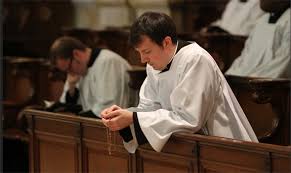
Pray for Priests
For the above reasons and many more, let us hold the Sacraments in the highest esteem. No better person than the priest, who acts in Persona Christi, to set the example. He should by no means balance himself on the razor’s edge, lest he leave the parishioner confused and demoralised, if he has cared to listen to the homily.
I write this with a heavy heart but in the spirit of “bear[ing] one another’s burdens and so fulfil[ing] the law of Christ” (Gal. 6:1-2). Hence, I would like to end with Pope Benedict XVI’s prayer for Priests:
Lord Jesus Christ, eternal High Priest, you offered yourself to the Father on the altar of the Cross and through the outpouring of the Holy Spirit gave your priestly people a share in your redeeming sacrifice.
Hear our prayer for the sanctification of our priests. Grant that all who are ordained to the ministerial priesthood may be ever more conformed to you, the Divine Master. May they preach the Gospel with pure heart and clear conscience.
Let them be shepherds according to your own Heart, single-minded in service to you and to the Church and shining examples of a holy, simply and joyful life.
Through the prayers of the Blessed Virgin Mary, your Mother and ours, draw all priests and the flocks entrusted to their care to the fullness of eternal life where you live and reign with the Father and the Holy Spirit, one God, for ever and ever. Amen.
Banner: https://truthout.org/articles/the-shutdown-as-shock-doctrine/
Why a Feast of the Kingship of Christ?
There are only a few monarchies left in the world but the concept is not inimical to human nature. In the Christian tradition, the monarchical idea goes back to the days when, by God’s command and public acclamation, Samuel anointed Saul as king of Israel (c. 1021-1000 B.C.). Later, on finding him inept, he appointed David, who after Saul’s death, became king of the whole of Israel whose tribes he united.
The world over, monarchies were the most common form of government until the last century. In his encyclical Quas Primas (1925), however, it is not the form of government that Pope Pius XI brings into focus; it is the concurrent worldview that he finds problematic. Writing in the aftermath of World War I, when some key monarchies had been replaced by republics, the Pontiff pointed to a king “of whose kingdom there shall be no end.” (n. 5) Decrying the growing secularisation of society, he made it clear that, “as long as individuals and states refused to submit to the rule of our Saviour, there would be no really hopeful prospect of a lasting peace among nations.”
The issue of the said Encyclical marked the sixteenth centenary of the Council of Nicaea, where the divinity of the Word Incarnate – the foundation of Christ’s empire over humankind – was properly defined. Very significantly, the commemorative Encyclical proclaimed “Pax Christi in regno Christi” (“The peace of Christ in the kingdom of Christ”).
Biblical endorsement
Quas Primas notes that “it has long been a common custom to give to Christ the metaphorical title of ‘King’, because of the high degree of perfection whereby He excels all creatures.” But the Pope is also quick to clarify that “the title and the power of King belongs to Christ as man in the strict and proper sense too. For it is only as man that He may be said to have received from the Father ‘power and glory and a kingdom,’ since the Word of God, as consubstantial with the Father, has all things in common with Him, and therefore has necessarily supreme and absolute dominion over all things created.” (n. 7)
The are several Biblical references to Christ as King, one of them being by Psalm 72, which foretells that his kingdom will have no limits, and will be enriched with justice and peace: "in his days shall justice spring up, and abundance of peace... And he shall rule from sea to sea, and from the river unto the ends of the earth." (n. 8). The Prophets, too, give abundant testimony.[1] The doctrine of the Kingship of Christ found in the Old Testament is “even more clearly taught and confirmed in the New”. For instance, St Luke speaks of the Archangel announcing to the Blessed Virgin that she should bear a Son; that "the Lord God shall give unto him the throne of David his father, and he shall reign in the house of Jacob for ever; and of his kingdom there shall be no end."[2] (n. 10)
Finally, Christ Himself speaks of his kingly authority.[3] So, it goes without saying that “the Catholic Church, which is the kingdom of Christ on earth, destined to be spread among all men and all nations, should with every token of veneration salute her Author and Founder in her annual liturgy as King and Lord, and as King of Kings.” (n. 12)
King, Kingship, Kingdom
To the unconvinced of the need to call Our Lord ‘King’, St. Cyril of Alexandria explains how “Christ has dominion over all creatures, a dominion not seized by violence nor usurped, but his by essence and by nature.”[4] The Pope says Christ’s kingship is “founded upon the ineffable hypostatic union. From this it follows not only that Christ is to be adored by angels and men, but that to him as man angels and men are subject, and must recognize his empire; by reason of the hypostatic union Christ has power over all creatures. But a thought that must give us even greater joy and consolation is this that Christ is our King by acquired, as well as by natural right, for he is our Redeemer. Would that they who forget what they have cost their Saviour might recall the words: ‘You were not redeemed with corruptible things, but with the precious blood of Christ, as of a lamb unspotted and undefiled.’[5] We are no longer our own property, for Christ has purchased us ‘with a great price’;[6] our very bodies are the ‘members of Christ’[7].” (n. 13)
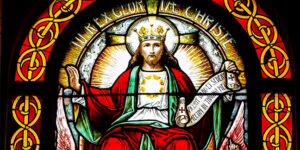
But what is the nature and meaning of Christ’s Kingship and His Kingdom?
Christ’s Kingship comprises a threefold power: legislative, executive and judicial. Christ, our Redeemer, is also a law-giver, to whom obedience is due;[8] those who keep his laws show their love for Him and shall remain in his love.[9] “Executive power, too, belongs to Christ, for all must obey his commands; none may escape them, nor the sanctions he has imposed.” He claimed judicial power as received from his Father[10], in which is included the right of rewarding and punishing all men living, for this right is inseparable from that of judging. (n. 14)
Yet, Christ’s kingdom is not earthly; it is spiritual and is concerned with spiritual things. “On many occasions, when the Jews and even the Apostles wrongly supposed that the Messiah would restore the liberties and the kingdom of Israel, he repelled and denied such a suggestion.” (n. 17) That is not to say that Christ has no place in in private affairs or in politics. Says the Pope: “It would be a grave error, on the other hand, to say that Christ has no authority whatever in civil affairs, since, by virtue of the absolute empire over all creatures committed to him by the Father, all things are in his power. Nevertheless, during his life on earth he refrained from the exercise of such authority, and although he himself disdained to possess or to care for earthly goods, he did not, nor does he today, interfere with those who possess them.” (n. 17)
All nations and all peoples are subject to Jesus Christ, the Universal King. In his earlier encyclical, Urbi Arcano (1921), Pope Pius XI decried the world’s folly in the following words: “With God and Jesus Christ excluded from political life, with authority derived not from God but from man, the very basis of that authority has been taken away, because the chief reason of the distinction between ruler and subject has been eliminated. The result is that human society is tottering to its fall, because it has no longer a secure and solid foundation.”
Lamenting that as long as the rule of our Saviour was repudiated, there would be no lasting peace in society. “If, therefore, the rulers of nations wish to preserve their authority, to promote and increase the prosperity of their countries, they will not neglect the public duty of reverence and obedience to the rule of Christ.” (n. 18)
Rationale
Pointing out that, historically, feasts have been instituted one after another “according as the needs or the advantage of the people of Christ seemed to demand”, Pope Pius XI implored our Divine King’s blessings. “That these blessings may be abundant and lasting in Christian society, it is necessary that the kingship of our Saviour should be as widely as possible recognized and understood, and to the end nothing would serve better than the institution of a special feast in honour of the Kingship of Christ. For people are instructed in the truths of faith, and brought to appreciate the inner joys of religion far more effectually by the annual celebration of our sacred mysteries than by any official pronouncement of the teaching of the Church. Such pronouncements usually reach only a few and the more learned among the faithful; feasts reach them all; the former speak but once, the latter speak every year – in fact, forever. The Church's teaching affects the mind primarily; her feasts affect both mind and heart, and have a salutary effect upon the whole of man's nature. Man is composed of body and soul, and he needs these external festivities so that the sacred rites, in all their beauty and variety, may stimulate him to drink more deeply of the fountain of God's teaching, that he may make it a part of himself, and use it with profit for his spiritual life.” (n. 21)
However, we need not wait for the Feast to venerate and adore Christ the King. We ought to seek Him through the year, under the Sacramental species; by public adoration of the Blessed Sacrament exposed, and by solemn processions (cf. n. 26). The Feast of the Kingship of Christ sets the crowning glory upon the mysteries of His life commemorated during the year.
[1] Isaiah (9: 6-7); Jeremiah (13: 5); Daniel (2: 44; 7: 13-14), and Zachary (9: 9)
[2] 1: 32-33
[3] Cf. Mt 25: 31-40; Jn 18: 37; Mt 28: 18; Apoc. 1: 5, 19: 16; Heb. 1: 2; 1Cor 15: 25
[4] Cf. n. 13
[5] 1 Pet. 1: 18-19
[6] 1 Cor. 6: 20
[7] 1 Cor. 6: 15
[8] Cf. Council of Trent, session VI, can. 21
[9] Cf. Jn 14: 15; 15: 10
[10] When the Jews accused him of breaking the Sabbath by the miraculous cure of a sick man. (Cf. Jn 5: 22)
Lux in Domino!
The Pastoral Bulletin of our archdiocese is once again in the spotlight. This time around, using Cardinal Newman’s words ‘Lead, kindly Light’ for its title, the editorial (Vol. LX, No. 20, 16-31 October 2022) encourages Catholics to ponder on Diwali, the Hindu festival of lights. Now, light is a universal symbol, possibly one of the most powerful across religions and cultures, so we might shortly be invited to ponder on what light means to the Jews, Muslims, Buddhists, Zoroastrians, and why not, to communists, anarchists and satanists as well! Such efforts at political correctness are sure to propel Renewal into the global spotlight.
The spotlight per se is not the issue; readers are afraid of the bulletin's current editorial policy blocking the Lord’s light. The main purpose of a pastoral publication is to be a beacon to the sheep, guiding them to the right pasture. On the plea of enlightening the sheep, the editor has steered them to other pastures instead. Is this the mandate the sacerdotal class has received from Our Lord Jesus Christ, who said, “I am the Light of the World. Whoever follows me will never walk in darkness but will have the light of life.” (Jn 8: 12)?

The impugned editorial speaks for itself. In a brief introductory paragraph, the editor reports his Divine Master as only one among equals. The remainder of the two-page leading article is divided fourfold: “Celebrations surrounding Divali”, expatiating on the five days of the festival; “Symbolism of Divali”, unravelling four key figures; “Christian Attitude towards Divali”, which carries the editor’s self-invitation to share in the joy and celebration of the Hindu community; and, finally, “Christian Understanding of Light”, in which he barely touches on the issue of Christ’s light at baptism. Earlier, he put the dipa and the nur Allah on par with the Paschal Candle… An absolute melange!
What ought to be our attitude towards the non-Christian festival of lights? According to the editor, “Christians could visit their friends and neighbours during Divali. They need not participate in the religious and faith dimension of the festival but they can surely participate in the social and cultural dimension of the festival.” It isn’t a ‘must not’ (negative obligation) but a ‘need not’ (absence of obligation); so, one is not required to do the thing, especially if one does not want to, but can do it if one wants to. One is completely free to act at one’s own discretion, no holds barred.
Beneath that poorly disguised disclaimer lurks the editor’s tacit approval. Note how over half of the editorial is dedicated to the “religious and faith dimension of the festival” – precisely the thing that Christians “need not participate in”! The lay faithful for their part have traditionally engaged in “the social and cultural dimension”, incurring no censure, by cordially greeting neighbours and/or friends. As a friend of mine says, it is a pity that “good sense observed by the lay faithful since times immemorial is shockingly being violated now by some priests and nuns with all their theological preparation.”
The freethinking editor goes on to suggest as follows: “The Christian could move further from the mere ritual of the festival to a better knowledge and understanding of the festival. The Christian could discover the richness of the symbolism, which crosses the boundaries of religion.” For God’s sake, what boundary crossing is that? A euphemism for a vague, universalist mysticism supposedly superior to all religions? It suggests that pastors have tasted it, so as to feel stimulated to ‘shepherd’ the flock…, er, away from the reality of our religion and of the Living God! What a travesty of our Faith! Is there nothing sacred anymore?
The final step in the editor’s flawed catechesis is here: “Organize inter-religious prayer meetings”, using Diwali “as a forum and an occasion to express solidarity with our Hindu brothers and sisters. Hence, inspired [sic] and dialogue on symbolisms of the festival, people from different faiths could get themselves together for a better bonding and understanding as humans and citizens.” Leaving the broad use of ‘faith’ for another day, what you have there is a mirage!

The said instruction sends the sheep not just to unknown pastures; sadly, it sends them out to the deep sea without a compass! On the one hand, Nostra Aetete, which encourages the study of other religions, states that “dialogue and collaboration with the followers of other religions” has to be “carried out with prudence and love and in witness to the Christian faith and life”. On the other, who can deny that our very own pasture is still relatively unknown to our sheep – largely through the fault of the same priestly class? And how impressive is our “witness to the Christian faith and life”? “I am the Way, the Truth and the Life”: are they words, words, mere words?
Apropos Nostra Aetete, which motivated the establishment of the Secretariat for Non-Christians, later called ‘Pontifical Council for Interreligious Dialogue’, may I point out that it was recently renamed ‘Dicastery for Interreligious Dialogue’, and not Dicastery for Culture and Education, as the editorial states! And there is more. If one “need not participate in the religious and faith dimension of the festival”, why “organize inter-religious prayer meetings”? And, pray tell, what “people from different faiths could get themselves together for a better bonding and understanding as humans and citizens”? For better bonding as humans, there’s nothing better than plain old good sense; and as citizens, we go by the Constitution. So, something terribly wrong there; or maybe, as Lord Polonius says in Hamlet, ‘Though this be madness, yet there is method in it.”
We have detected the first part; but what about the ‘method’? Execution of new-fangled notions by clerics enjoys at least silent consent, if not total approval, from the ecclesiastical authorities; but for fear of opening a Pandora’s box, the laity have been kept in the dark, not to say left in the lurch. It is indeed the intricate art of the slow reveal, although it is already quite evident that a new religion or a new church is on the horizon. The rest of us, however, are confident that “nothing is covered up that will not be uncovered, and nothing secret that will not become known. Therefore, whatever you have said in the dark will be heard in the light, and what you have whispered behind closed doors will be proclaimed from the housetops.” (Lk 12: 2-3)

Is it not abundantly clear that Renewal is sponsoring an eclectic mix of religions? This Diwali, WhatsApp images declaring Jesus as the Light of the World – and yet with a ‘Happy Diwali’ greeting merrily tagged on – made the rounds. The editor of Renewal may not be directly responsible for this faux pas, but we can’t help but wonder if this kind of ‘renewal’ will soon be the order of the day! The incongruity of the message apart, does it not amount to misappropriating concepts from other religions and diluting our own? We can’t feast on such a ‘fruit salad of religions’, can we?
But then, that is how Syncretism works. A cross between two things is neither one thing nor the other; it can even cause strange occurrences like “photosynthesis of human living” [sic], to which the editorial makes a passing reference. Be that as it may, no photosynthesis can ever take place using earthen lamps! We always need the Light of the World.
Laity and Clergy in Goa: Moods and Expectations (3/3)
As we bring the present set of sentiments to a conclusion, we reiterate that we wish to see our faith practised in accordance with Church doctrine. People are thirsty for the Living Bread and the Living Water; they feel repulsed when they get a snake or poison instead. As Jesus said, ‘And which of you, if he asks his father bread, will he give him a stone? or a fish, will he for a fish give him a serpent?’
It goes without saying that this blogpost, like all the previous ones, is about OUR Faith – and not others’ beliefs. We are not questioning the constitutional freedom of others to follow their own beliefs. And they too, like us, may not wish to see syncretic practices disfiguring or diluting both sides. In short, ‘good fences make good neighbours!’
Let’s, therefore, not mix spirits and create a strange concoction. The subject at hand is of supreme importance and never too much to dwell on. It’s a matter that impacts the foundations of our Faith and, consequently, Eternal Life, and so never too much to ponder on.
Which brings us to our request to the Authorities: feel the pulse of the laity. Or, as the Pontiff has said, listen to your people!
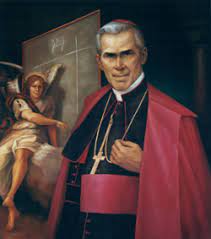
Much earlier, the Venerable Fulton Sheen did not hesitate to state something that, today, could appear “arrogant”: ‘Who is going to save our Church? Not our bishops, not our priests and religious. It is up to you, the people. You have the minds, the eyes, and the ears to save the Church. Your mission is to see that your priests act like priests, your bishops act like bishops, and your religious act like religious.’
It is in this spirit of reverent and filial appeal to His Eminence Cardinal Ferrão, that we say: Listen to our voice. Vox populi, Vox Dei!
Virgin Most Faithful, pray us! St Thomas the Apostle, pray for us! St Francis Xavier, pray for us! St Joseph Vaz, pray for us! Holy Souls of our ancestors converted to the Catholic Faith, pray for us! May God save our Faith!
And here we end our first catalogue of sentiments. Read on!
**** […] beautifully narrated but shocking. Are you sure it’s one of our priests or someone impersonating him to mar the reputation of the Catholic religion! […] If priests do not obey the Commandments, then what teaching would they give their flock? Where is our religion heading? [..] I sincerely hope and pray that the matter will be clarified by the ecclesiastical authorities in the archdiocese and by the CBCI. If not, I can just visualize the effect this will have on our youth… Prayer is our only weapon. – SP – My comment: The name of the priest and the proceedings are on record.
**** Concordo plenamente e reforço o que expressou no seu post.
**** […] What the priest is doing here seems to be of Syncretism (?) not of interfaith dialogue.
**** We have visited and greeted our Hindu friends for Ganesh Chaturthi even during the Portuguese days when we were children, much before we heard such big words as 'inter-religious dialogue'. But, of course, we did not fold our hands and pray in front of the idol of Ganesh and pose for photographs. If our dear priests (and nuns) could observe just this simple rule of good sense, they would avoid spreading error and creating controversy.
**** Who is this priest and where is this place? Can one worship two Gods? What’s this nonsense! What more is left? Such a shameful act! And that’s what makes God so angry. This priest should be suspended, as priests are in the form of Jesus Christ Himself, especially when they serve Mass at the altar.
**** It looks like a policy that ‘if you can't fight them, be with them. Don’t antagonize them’. Not joining them by changing to their faith is to live peacefully. – My reply: If we respect our identity, others will also respect us. Those who are not happy should leave the Church and join the other side. We can’t keep our legs in both the boats.
**** This is very sad and dangerous on their part. First it was priests singing bhajans and now this! I had in fact stopped going […] to people’s houses long ago as some of them expected [me] to bow before the idol.
**** How far some of our people go!
**** [‘Does our Sensus Fidei need Renewal?’] is relevant to caution our laity and priests. Well researched. – PRIEST
**** Já que aos padres não interessa proteger e disseminar, tem de ser os leigos a defender a Igreja Católica…. É pena que a nova geração dos padres não tenha queda académica no seu ADN. Acho que não temos pessoas para os orientar.
**** […] Agree with what you have stated. I too have interacted personally with some priests and expressed my strong concern in this regard. We have to be vigilant and alert and let the priest know of our deep concern and anxiety in such matters. They need to feel the pulse of the laity. I get the impression that instead of listening and acting appropriately they have…. [truncated message]
**** Excellent [ref. to ‘Does our Sensus Fidei need Renewal?’]. Remarkable, such extensively theologically researched… I too got enlightened with many of the Church documents. – PRIEST
**** Sadly, this issue is slowly distancing the Church leadership from the lay faithful and evils of pride and ego may only give Satan a broad entry.
**** […] I’m hoping our clergymen read this and get our Church back on track.
**** […] Read your response to Renovação’s tirade. […] If priests and their sheep really worshipped the idol it is preposterous. I got the forward about this event from a hard core ‘Believer’ who thus picked up one more stone against the Catholic Church. Your response to Renovação is sincere, highly well informed and extremely well written. You have spoken for the community. […]
Banner: https://www.historytoday.com/history-matters/strange-afterlife-pontius-pilate
Laity and Clergy in Goa: Moods and Expectations (2/3)
In continuation of yesterday’s post, here are the final lines of the PRIEST’s letter, saying that the Catholic priests have been “an object of acerbic criticism by probably some vested interests who have found the social media very handy for the dissemination of their bilious anger against Catholic priests and the Church in general.”
‘Vested interests’? A ruse to divert people’s attention from pressing issues! The enemies of the Church are not outside but inside. It is not only the ‘smoke of Satan’ that has entered the Church; it is Satan himself who is lurking in our midst, and many simply don’t wish to notice his presence.
Why blame the social media? Another convenient ruse. Doesn’t the Archdiocese have a Centre called the Diocesan Centre for Social Communications Media? Don’t priests individually use social media to disseminate news and views? And how much of it is the ‘Good News’? A case in point are the views expressed by the clergymen on this forum: often ambiguous, sometimes contradictory, rarely the full truth.
‘Bilious anger’? Nay, Righteous Anger! We are with the Priests as long as they are with God! Let’s speak the truth, and nothing but the truth. Facts are facts; against them, there can be no arguments. ‘Let your speech be yes, yes: no, no: and that which is over and above these, is of evil.’ (Mt 5: 37). That’s the people wish. Vox populi.
Some more comments below show the mood and expectations of the Catholic laity and clergy in Goa:
*** I have sent it to some senior priests. Can something be done or the priest corrected? … I sent it to some top clergy. Let’s pray that they take this seriously. I sent it to a Nirmala sister too. They didn’t answer me. But Sister was upset. She summoned me to Nirmala’s to speak to her… I told her the last post came from Canada and sent by a very good friend who was also an ex-student of Nirmala Institute of Education… And we are concerned about what’s happening… I told her that some lay people and priests too are upset with what’s going on. Inculturation is one thing, but this is crazy. To which she just kept quiet.
*** […] There is a thin line between respecting everyone’s faith and praying to other deities. Total breach of our First Commandment. Really sad.

*** We had a conference for catechists recently at Joseph Vaz Centre, Old Goa, to explain the Pastoral Letter 2022 of our Bishop. The above image [‘One Light – Many Lamps’] was used in the presentation slide by the priest… Through the catechists, they are corrupting our children… Since they started such exercises, has the religious harmony increased or is it more vitiated now than earlier? […]
*** […] Wonder what we could do to educate our priests. I am game for anything.
*** What is happening! So sad. Hopefully there is a […] clarification from Church authorities.
*** Claro, como diz, uma coisa é o diálogo e bom convívio inter-religioso, outro é sincretismo… Ainda para mais, dada a idiossincrasia goesa.
*** […] There is no punishment by our Church. Christian politicians worship idols and break coconuts in front of them. Archbishop has not commented or excommunicated any of them. So, Catholics in general are not cautioned against the consequences. One priest's excommunication without much publicity would send a strong message down clergy and lay persons... It's ridiculous to see things happening around us ... Nowadays, I don't know if you have come across the streets in Panjim... There are these so-called fellowship groups, Born-again Christians going about talking about the Bible, convincing you about things in the Bible... They know the Bible so well that a fool can get mesmerized... I would say that's sheep stealing...
*** I agree with you 100%. I’ve said the same thing time and time again. I particularly condemn the blatant idol worship indulged in by many of our so-called ‘Catholic’ politicians…. But a priest doing the same thing is taking it to another level altogether… I'll be posting your article liberally, both individually and in various groups.
*** This interfaith dialogue has crossed boundaries.... Our priests (some of them) bend over backwards to please […] those who matter. We don't see them coming to our homes at Christmas time, and bowing in front of the crib, for example. If Goa has gone to the dogs, it's the Church to blame. […] I feel quite disgusted with this […] attitude of some of our religious starting with those at Archbishop House.
*** […] I’m aghast that a Catholic priest could do what he’s purportedly doing here. I hope there’s an explanation somewhere.
*** Very true. It violates the very First Commandment.
*** I came across your social media post ‘Elephantine Blunder’. […] The priests did not bow before the idol but prayed to God along with the family without invoking Ganesh. – My comment: That’s instant absolution! Which ‘god’ would he pray to other than the idol itself?
*** It may be for optics, which is also a blunder.
*** It is absolutely wrong to pray before other gods, I agree. However, social visits to people of other faiths during their festivals should be encouraged. It is also unfortunate that inter-religious dialogue has been limited only to organising prayer meets, with no room for inter-religious dialogue of life issues. We have so much in common to work for to establish justice and peace in our society. – PRIEST – My reply: Interaction on the social plane is fine but we can't compromise on the tenets of the faith. Such syncretic practices are an absolute no-no. – PRIEST: I agree.
Banner: https://lucascranach.org/en/DE_SKD_GG1941
Laity and Clergy in Goa: Moods and Expectations (Part 1/3)
Given below are some of the WhatsApp messages received from members of the laity and the clergy in response to our posts, ‘Elephantine Blunder’ https://bit.ly/3ClZHaP and ‘Does our Sensus Fidei need Renewal?’ https://bit.ly/3SM9zSr, dwelling on an issue that has wounded the core of our Christian being: relativism, syncretism, idolatry… by some of the very people who are supposed to – and claim to – respect and protect it. St Thomas Aquinas in his Summa Theologica says that violation of the First Commandment is ‘the most grievous sin’.
The present catalogue of sentiments does not include general messages of appreciation and support received. Writers’ names do not appear; in the case of Priest writers, the same is specifically mentioned. Some messages have been slightly edited, for clarity; and those straying into other areas have been left out altogether.
Meanwhile, it is reported that His Eminence Cardinal Ferrão has expressed consternation at the turn of events and has justified the laity’s angry outbursts. In his address to the Deanery heads of the Archdiocese, he allegedly condemned idolatry, appealing to his priests to exercise caution when on social visits to people of other faiths. On insisting that Christians use the word ‘Lord’ to refer exclusively to Jesus Christ, His Eminence purportedly said that he does not visualise a repetition of such ugly incidents in the future. Unfortunately, there is still no official confirmation of the sentiments expressed by our Cardinal.
It may be said that in face of such a heinous scandal, an oral warning to the Deans or to the entire Goan clergy is not enough. Verba volant; scripta manent! Spoken words fly away; written words remain. Hence, only a Circular issued to that effect by His Eminence condemning the scandal and explaining the doctrine of the Church regarding the sin of idol worship can set the record straight and bring the issue to a logical and just conclusion, not least because the Archdiocese’s official organ – Renovação /Renewal/ Novsornni – in a recent issue (16-30 September 2022) sang a different tune. This is our request.
To great evils, greater remedies! Here is a cancer that is not amenable to chamomile tea! The laity expect clear-cut directives; a stern rebuke to the perpetrators; and acts of reparation – all of which the Church habitually does in grave matters – indeed, grave as it, as the messages below bear out:
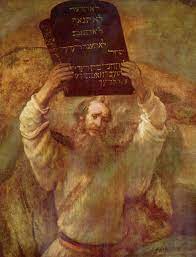
- ‘You did well, indeed, in just two words: “Elephantine Blunder”! Now that this topic has come up, let me say that on this particular Sunday [12/9/22] our priest explained at length all the mighty attributes of the 'lord': the fine eyes, trunk, the arms and the articles they are holding, the big paunch, the carrier-vehicle, the first transplantation surgery, and the broken tusk – and went on to say that all these attributes are already Catholic and we should have no qualms about it […] Lord, have mercy on us! …’
- ‘I totally agree with you. Thanks for raising your voice against paganisation in the Church.’
- ‘This is one of the reasons why other sects such as New Life, many self-proclaimed ministries, attack the Church, stating that she's impure. The Church is not impure, she is holy; but just because of some fallback/practices done by some of the religious ministry – such as this idolatry – she takes a hit. It is so sad. God bless us.’ – [Fwd]
- ‘[…] I have stopped looking at what they are doing and read and teach Jesus’ Gospel Word. Please follow and try to obey Jesus New Testament Word. If you don't mind, I will send you some Word from Jesus Gospel […] I have spoken to the [clergy] and find that they do not have the Holy Spirit to understand Jesus’ Gospel, so let us forgive them and work to understand Jesus’s Word for our own Salvation.’ – My reply: We can’t overlook what they are doing! They are supposed to show the way; they hold souls in their hands… Forgiveness is one side; Justice is the other. And this is what we want… God also wants us to be alert and stop being naïve. They are pulling the rug from under our feet... Counter-reply: The Devil also uses people in authority to build his own church.
- ‘Just because the position is facing the idol in no way does it mean he is praying to the idol. I would like to bring to your attention that Jesus narrated the three parables to the Pharisees who considered themselves better than the tax collectors and other sinners… Pictures deceive. I know very well that he has caused no scandal. Again, I say the prodigal son's parable was addressed to the pharisees who made life difficult for others.’ – PRIEST [Fwd] – My comment: The priest is clearly in prarthana position. And it is reported that he led the parish youth to pray and sing (hymns from Gaianancho Jhelo).
- ‘This is abominable. Who is this priest?’
- ‘[Your article] has been a big blow to false inculturation and to the pan-ecumenical revolution.’
- ‘To me, it looks as if Ghar Whapsi has begun in Goa.’
- ‘[...] a total abomination in the sight of our Living God. This is so utterly disgraceful... Bowing to [...] idols by a Catholic clergyman. Shame on him and the system he follows...’
- ‘Oh, my goodness! Where was this? That’s so alarming. This is actually against our First Commandment, is it not?’
- ‘[…] And since these are teachers/Shepherds who lead the faithful in idol worship they will be severely judged as Jesus has already stated. God! This is so scandalous and we thought only [...] were idol worshippers...’
- ‘[...] next time do not share items against the Church... By sharing we become part of those who are against us...’ – PRIEST [Fwd] – My comment: What a shallow remark! Well, this is not against the Church but against a scandal performed by a Priest, tarnishing the image of a true Pastor… Were the Popes who condemned Luther and the Modernists enemies of the Church?
- ‘It’s good that you called this out. About time that someone did it… Maybe you should send it to Dr Taylor Marshall!’
- ‘So, this is one of our own priests!... Really!!... And is our Archdiocese not aware? I wasn’t!... That amounts to testing Almighty God Himself… Shudder at the thought… We have no Moses anymore… It cannot be an accident that the very First Commandment covers this issue… it means that this is topmost on the list of God’s mind.’
- ‘You are so right to express your justified anger against this idolatry despite God's express Command. God must have mercy on us, before His wrath consumes us!...’
Finally, I transcribe part of a comment from a priest holding a high position in the Church:
- ‘[…] I agree with you a hundred per cent that the photograph that you have published shows a priest whose “prayer posture absolutely begs an explanation.” He is seen praying with his body turned towards the idol. As ambiguous and compromising as his prayer posture may be, would you like to think, even for a second, that he is saying something like, “O Lord Ganesha, please hear our prayer”? At least I would not.’ – PRIEST – My reply: ‘Thank you, […]! I don't wish to guess what the priest is saying, much less put words in his mouth. He will have to give an account to God. But a pic is worth a thousand words, hence the criticism on social media. It has its reason for being.’ – PRIEST: Agreed.
(To be continued tomorrow)
Banner: https://www.nationalgeographic.com/culture/article/aaron-brother-moses-worshipped-golden-calf
Does our Sensus Fidei need Renewal?
It is a matter of joy that religious faith and public opinion in Goa are not dead. Following a public scandal that the laity found it fit to highlight on social media, our archdiocesan bulletin, Renovação/Renewal/Novsornni (Renewal, for short), albeit unusually, responded editorially. The laity’s reaction to the scandal ranges from plain shock to utter disgust, but the editorial stance is one of blind defence and utter coldness to the laity’s cries for clarity on the subject, such as the Catechism of the Catholic Church provides.
Just how does Renewal get on with its defence? The editorial, titled ‘Being Living Witnesses of Christ’ (Vol. LX, No. 18), thrusts upon the readers, in a disjointed and unwieldly manner, a barrage of Church documents but maintains a studied silence on the main issue of concern: whether or not the elephantine blunder in Siolim qualifies as syncretism, idolatry and apostasy![1] It is a pity that the readers, instead of being shepherded to the refreshing waters of Catholic doctrine, are thus left thirstier than ever. So, just why can’t our ‘pastoral bulletin’ be a wee bit more pastoral in its approach?
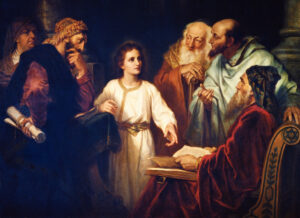
Is the editorial’s long-winded style indicative of a gulf that exists between the shepherds and the sheep? At any rate, the lead article plays the victim card and, in the same breath, censures the laity for alleged ‘ignorance’ and ‘arrogance’. It may even seem as though the editor is repulsed by ‘the smell of the sheep’ and ‘[in]capable of living, of laughing and crying with your people, in a word, of communicating with them.’[2] Isn’t the church organ falling short of instructing the ignorant as a spiritual work of mercy? And how can the spirit of ‘dialogue’ be allowed to vanish into thin air, as it often happens when it is about dialoguing with the internal public! And how come the full import of a layperson as ‘priest, prophet and king’ suddenly seems unpalatable?
The fact of the matter is that, faced with the public scandal of priests adoring the Ganesh deity, Renewal has evaded the question. Sadly, the editorial misquotes Biblical passages and misses out relevant ones – just as it fails to cite pre-Vatican II documents to buttress the case, if any. (Why? Is the church today a far cry from the pre-Conciliar one?) Then, the editor cites papal and archdiocesan documents that supposedly come in his defence but, really speaking, none of them endorse idolatry – they just can’t! He mentions the CBCI commission for ecumenism and dialogue; several conferences and seminars (on non-Biblical scriptures, on sharing of worship, etc.), but he overlooks the fact that these bodies have no magisterial authority. In this regard, it is interesting to read what Cardinal Ratzinger has to say about episcopal conferences in the Ratzinger Report.[3]
The editor also refers to the first Plenary Council of India (1950), but makes no mention of its rejection of religious indifferentism and of the syncretist view that the religion of the future will be a synthesis of the good elements of all religions. And as for the All India Seminar on Church in India Today (1969), for the implementation of Vatican II in India, Valerian Cardinal Gracias had a word of caution as he presented 1668 pages of preparatory material: ‘If fifty years hence there is to be another Ecumenical Council, it seems to me that the Bishops, the Clergy, the Religious, the laity of that period would be in a privileged position having at hand this abundant material, unless they – which is possible – consider then all this outdated or – which is not improbable – after bitter experiences in experimentation, decide to revert to Vatican I!’[4]
Prophetic words! It may be noted that the seminars mentioned in the editorial have been forums for diffusion of theological errors, which His Eminence the late Jozef Cardinal Tomko denounced at the Fourth Extraordinary Consistory, a meeting of the world’s cardinals, in April 1991. The then Prefect of the Congregation for the Evangelization of Peoples called the bluff of the ‘doctrinal confusion regarding the content of faith’, specifying ‘a gnostic relativism and a theological misunderstanding which levels all religions.’
The said Cardinal pointed out that some theologians ‘have developed unacceptable and destructive doctrines’ that are ‘reducing evangelization to mere dialogue and development, with the abandonment of proclamation, catechesis, and logically, conversions and baptisms. They strongly confirm the basis and justification of two phenomena denounced in the encyclical Redemptoris Missio: “a widespread indifferentism” and “a religious relativism” which leads to the belief that “one religion is as good as another” (n. 36)’
Adding that, by such doctrinal standards, evangelization ‘would consist solely in dialogue, inculturation and liberation,’ His Eminence alerted us to the fact that, ‘according to some Indian theologians, in the search for dialogue, Jesus Christ divides rather than unites’; and that ‘to dialogue as equals, either Jesus Christ is downgraded by not mentioning His divinity, or the founders of other religions are exalted making them quasi-incarnations of God.’ He stated these tendencies have Asia as their ‘main territory’ and India as the ‘epicentre’, and warned against the ‘simply devastating’ consequences of those doctrines.
Those promoting this destructive theology believe that ‘the universal mystery of salvation is accomplished through all religions.’ Cardinal Tomko warns us against those who see salvation as a form of ‘utopia’ that would ‘unite everyone in a community of love, justice and peace’.[5] Three decades down the line, his words are still a providential and urgent warning about the modern errors. A case in point is that heady mix of religious symbols depicted on the cover of Renewal, inscribed with the words ‘Only Love Unites’ – in an awkward bid to equate all faiths. In practical terms, the consequences of such a relativist agenda are there for everyone to see: weakening of the faith and moral decadence; lack of attention to Church Tradition; syncretism, relativism, secularism, and so on. When will the authorities see the writing on the wall?
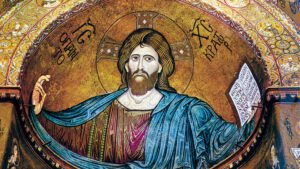
Finally, what does it profit us to build bridges with other religions and their public and forsake our own religion and people? This is a question on the lips of every Catholic worth his salt. We are called to be the light of the world and salt of the earth. Whatever be the ‘perennial values’ of other religions, as peddled by the editorial, nothing can surpass the supreme values of our Faith. Our minds and hearts are made for the One True and Living God, Jesus Christ, Who is the Alpha and the Omega; the Way, the Truth and the Life; the Only Saviour of the World, and the very reason of our being. It is inconceivable to us that a Catholic bulletin should ever mince words on this most basic tenet of our faith. It is an attempt to strike at the very foundations, yes, but those proud of the Faith that they have inherited and to which they now belong shall not consent to its liquidation!
Therefore, let’s hold strong to our Catholic identity. Let none persist in the present folly, playing into the hands of New Age movements and the New World Order with sinister agendas. And beware of the false knowledge they provide – which is more dangerous than ignorance! It is simply absurd to blindly apply new-fangled theories, or worse still, to expect that they will be swallowed by the faithful, and all the while fail to set our eyes on the final good of the soul.
Wouldn’t it be wiser, then, to heed the Pontiff, who said, ‘Strip yourselves of your pre-constituted ideas, your dreams of greatness, your self-assertion, in order to put God and people at the centre of your daily concerns’? He further counsels the priests who would like to be intellectuals, not pastors, to be lay persons instead.[6] It would probably help trigger a great renewal of their sensus fidei (sense of the faith), eventually inspiring everyone to become what the editorial envisages – ‘Living Witnesses of Christ’ fully participating in the life of the Church, with responsible adherence to the Magisterium, to the deposit of the faith.[7]
Feast of St Therese of Lisieux, Patron Saint of the Missions, 1 October 2022.
--------------------------------------------------------------------------------------------------------------------------------
[1] https://www.churchmilitant.com/news/article/goa-new-cardinal-winks-at-ganesh-idolatry
https://www.oscardenoronha.com/2022/09/13/elephantine-blunder/
https://www.churchmilitant.com/news/article/cardinal-rebuked-for-homage-to-hindu-idols
https://www.churchmilitant.com/news/article/diocese-defends-clergy-visits-to-hindu-idols
https://www.youtube.com/watch?v=QfJOusrKWrY
Accessed 30 September 2022
[2] https://catholicnews.ie/pope-francis-to-priests-be-shepherds-with-the-smell-of-the-sheep/ Accessed 30 September 2022
[3] ‘We must not forget that the episcopal conferences have no theological basis, they do not belong to the structure of the Church, as willed by Christ, that cannot be eliminated; they have only a practical, concrete function,’ in Ratzinger Report: an exclusive interview [with Vittorio Messori] on the State of the Church (digitized by the Internet Archive in 2011, http://www.archive.org/details/ratzingerreporte00ratz p. 59
[4] Welcome Speech, by Cardinal Valerian Gracias, All-India Seminar: Church in India Today (New Delhi: CBCI Centre, 1969) p. 434.
[5] All quotations pertaining to Jozef Cardinal Tomko are taken from L’Osservatore Romano, No. 15, 15 April 1991, p. 4; and The Examiner, 22 April 1991.
[6] https://catholicnews.ie/pope-francis-to-priests-be-shepherds-with-the-smell-of-the-sheep/ Accessed 30 September 2022
[7] Cf. Pope Benedict XVI’s speech to the International Theological Commission, on 7 December 2012, https://www.vatican.va/content/benedict-xvi/en/speeches/2012/december/documents/hf_ben-xvi_spe_20121207_cti.html Accessed 1 October 2022
Between London and Rome
The funeral ceremonies of Her late Majesty Queen Elizabeth II were a sight to behold. They summoned up Wordsworth’s lines about the grandeur of London in the early nineteenth century:
Earth has not anything to show more fair:
Dull would he be of soul who could pass by
A sight so touching in its majesty…

What prompted billions across the globe to be glued to their screens during the week-long obsequies? It was heartening to see the religious conviction of a modern monarchy; consoling to watch grief and gratitude enfolded under a magnificent blue sky; and to appreciate the amazing dignity and grace of regalia. The ceremonials were a fitting tribute to a monarch who valued truth, goodness and beauty, Christian virtues par excellence. As in life, so in death.
As I looked at commoners in never-ending queues filing past the Queen’s coffin with a bow before, my mind travelled back in history. Britain was a seat of the Roman Catholic faith from the third century onwards. In circa AD 1601, Ethelbert of Kent became the island’s first Catholic king. Other kings followed suit. Interestingly, Elizabeth II could trace back her lineage to the first king of all of England, Athelstan (895-939 AD), and his father Edward the Elder and grandfather Alfred the Great, of the House of Wessex.
Clearly, neither monarchy nor Christianity was foreign to Britain. The country had a long communion with Rome, but alas, King Henry VIII ended it in AD 1534, forming the Church of England, also known as the Anglican Church. However, much of the Roman Catholic tradition persists, being particularly close to the hearts of the Anglo-Catholics, products of the Oxford Movement led by John Henry Newman, who later converted to Catholicism and became Cardinal. That ensures that Britain remains Rome’s closest natural ally.
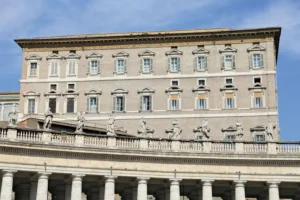 Another facet that unites Britain and Rome is the institution of the monarchy. Whereas the former is now a constitutional, hereditary monarchy, whose titular, historically, was granted the title ‘Defender of the Faith’ by the Parliament; the latter is an elective, non-hereditary monarchy, in which the Pope is the leader of the Universal Catholic Church. While in Britain, the ability to make and pass legislation resides with an elected Parliament, in Rome the Pope has ‘the fullness of legislative, executive and judicial powers’, aided by cardinals, regarded as ‘princes of the Church’.
Another facet that unites Britain and Rome is the institution of the monarchy. Whereas the former is now a constitutional, hereditary monarchy, whose titular, historically, was granted the title ‘Defender of the Faith’ by the Parliament; the latter is an elective, non-hereditary monarchy, in which the Pope is the leader of the Universal Catholic Church. While in Britain, the ability to make and pass legislation resides with an elected Parliament, in Rome the Pope has ‘the fullness of legislative, executive and judicial powers’, aided by cardinals, regarded as ‘princes of the Church’.
In a world not very acquainted with monarchies, it is never too much to underline that the monarchical state draws from an ancient principle evident from the Bible (and non-Christian cultures as well): that monarchs were chosen by God to rule His people. While Queen Elizabeth II has had close to forty generations of monarchs preceding her over the last thirteen centuries, Rome has produced 266 Popes since the first century.
Numbers apart, whether or not monarchies are still relevant in the contemporary world is a more important issue. Indeed, it appears that a well-functioning monarchy is a great asset. Unlike elected representatives, monarchs rise above the uncertainties of the next election and focus on the next generation. As upholders of tradition, they instil a sense of pride in the people and offer stability in troubled times. Considering that most of the monarchies today have a constitutional status, it is hardly likely that they should turn tyrannical.

Britain’s Queen of happy memory presided over one of the longest functioning monarchies in the world. For her part, the Catholic Church is unique in showing how a head of state can have a monarchy with a blend of aristocratic and democratic elements too. St Thomas of Aquinas recognised the value of a king – “a shepherd seeking the common good of the multitude” – but strongly opposed an absolute monarch. How it will all pan out, with a new monarch in London and a Synod on Synodality coming up in Rome, only time will tell.
Banner: https://medium.com/@steverob1066_3899/non-angli-sed-angeli-a1a3d1f7656c
Elephantine Blunder
It is significant that, close on the heels of an elephantine blunder that we have witnessed in our archdiocese, this Sunday’s liturgy of the Word comes down heavily on those who scandalously turn to other gods.
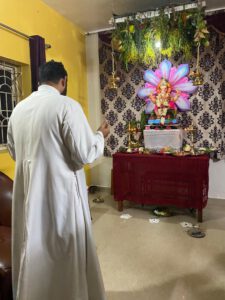
In the First Reading (Ex 32: 7-11, 13-14) God is rightfully angry with His people for forgetting Him Who had delivered them from the slavery of Egypt. Now they worship abominable little gods of their own making.
How is this any different from Catholics ‘jumping on the idol worship bandwagon’ [1] in Goa? More than one priest is known to have gone on pilgrimage to Ganesh household shrines. If it was a plain social visit, this priest’s prayer posture absolutely begs an explanation.
What is the rationale behind bowing before idols? It is one thing to build bridges on the social plane, say, by having colleagues from other faiths and enjoying their company at work or in the neighbourhood; it is quite another to be praying before their deities. If this is not a breach of the First Commandment, what is?
The laxity in the practice of our faith seems to be a natural consequence of an ‘inculturation’ gone awry. It has shown us the true colours of the so-called ‘inter-faith dialogue’. And the project is rendered even more sinister by the fact that there is a concerted effort to play to the gallery, at the national and international levels. And playing the game is a clique of fifth columnists that collects funds for a misplaced ‘evangelization’.
That is to say, what we have witnessed in Goa is not an isolated incident; it is not a case of one priest going astray but rather a case of one expressly led astray. It fits the bill.
If we are not to sit in judgement without listening to the other side, it is sincerely hoped that the matter will be clarified by the ecclesiastical authorities in the archdiocese and by the Catholic Bishops’ Conference of India (CBCI), of which our Archbishop and newly-appointed Cardinal is the president.
At any rate, we also hope that the teaching of our religious doctrine will stop being fuzzy; that its practice will be truthful and firm, and that we will decidedly stop walking on the razor’s edge.
(This post was first circulated on Whatsapp, Sunday, 11 September 2022)
[1] https://www.churchmilitant.com/news/article/goa-new-cardinal-winks-at-ganesh-idolatry

